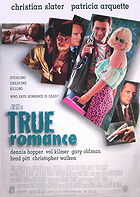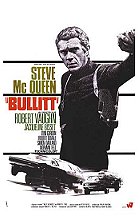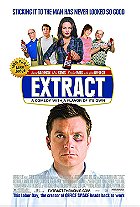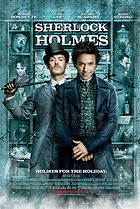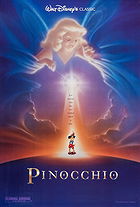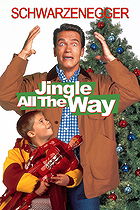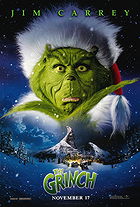Based on actual events, the critically-acclaimed Boys Don't Cry tells the heartbreaking true story of a young woman suffering from a "sexual identity crisis". 20-year-old Teena Brandon (Swank) does not perceive herself as a woman. She sexually desires other females, but she doesn't consider herself a lesbian - rather, she sees herself as a heterosexual man, and decides to live life under the alias of Brandon Teena. Biologically, she was a woman. In all other respects, however, Brandon was male. In 1993, Brandon moved to a small town where a low-rent group accept him for what they believe him to be, and he even manages to charm the beautiful Lana (Sevigny).
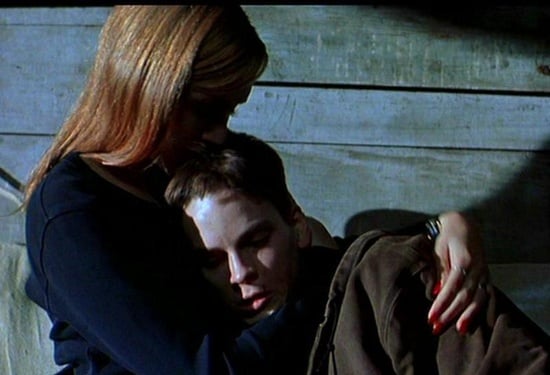
All is peachy until the truth about Brandon's biology is unearthed, and he quickly realises how fast things can change. The majority of the runtime for Boys Don't Cry chronicles Brandon's entrance into his new group of friends as well as his blossoming relationship with Lana. The final quarter, however, details how those who had previously accepted him into their "family" react to the realisation that Brandon's identity is complicated in a way that they could never have expected, and how this leads to horrific violence. Said violence that is unleashed upon Brandon is ultimately a crime of frustration and confusion, and it makes a disturbing statement about the Midwestern attitude towards homophobia. It's the direct result of unthinking men who find themselves unable to deal with the rupture of sexual identity posed by Brandon. In this way, Teena Brandon is a symbol of everyone who is unable to neatly fit into the presupposed categories in the culture of everyday life.
There comes a point as Boys Don't Cry nears its dénouement when Lana is asked to admit her lesbianism; echoing a point at the beginning of the film in which Teena is asked to accept hers. But neither person is able to. Put in conjunction, these two scenes solidify the point that Brandon was a man who loved women and Lana was a woman who loved men. Neither was homosexual - it was simply a matter of the fact that neither had the facilities (or the funds) to complete Brandon's natural physical transition into manhood to match his mental state. In another masterstroke, the screenplay - penned by director Kimberly Peirce and Andy Bienen - never attempts to disguise the fact that behind his forced happiness, Brandon was deeply troubled. He had a history of theft and petty crime, on top of a tendency to be dishonest. For the most part, the film sticks closely to the facts presented in the 1998 documentary The Brandon Teena Story. The story has been slightly altered, of course, but most of the characters and events are accurately presented. Certainly, none of these alternations dilute or diminish the movie's brutal impact.

First-time feature film director Peirce has assembled her motion picture in a straightforward but compelling fashion. Her direction is calm and assured; affording a leanness to the imagery which stands in direct contrast to the emotional complexities of the characters. Furthermore, Boys Don't Cry is masterfully imbued with naturalistic and mechanical imagery which compounds the sense of the characters' hopelessness. Peirce accentuates their despair by speeding up the film stock from time to time, and, while this sped-up footage unfolds, the characters observe in a stone-like stasis. Boys Don't Cry certainly earns its 'R' rating - it's emotionally fatiguing and visceral. Peirce did not intend for the film to be seen by those unwilling to confront the horrific results of intolerance and hatred. The audience is spared of nothing - every graphic detail of every indignity endured by Brandon is presented onscreen. Those who cannot stomach such scenes will find this movie nigh on unwatchable, while others will be rewarded with a potent filmic experience.
Boys Don't Cry does go slightly awry, however, in granting its principle characters such a small amount of background; providing insufficient insight into many of their motives. While one can sympathise with the deeply troubled Brandon, Peirce never explains the WHY. The story begins with Brandon's makeover, but the turning point is unclear, with no flashbacks and little history. It takes longer than usual to immerse oneself into this particular world due to this, on top of the fact that throughout the marginally overlong runtime, the film occasionally loses a degree of momentum. As for the rest, Boys Don't Cry is a superbly-crafted re-enactment, but it's doubtful one will come away loving it. It's one of those remarkable films one loves and hates at the same time, and one of those movies one doesn't particularly wish to see again.

Another great success of Boys Don't Cry is the phenomenal acting. The cast, which was comprised primarily of small-time actors of the time, is close to perfect. The lion's share of the praise belongs to Hilary Swank, who, with her short hair cut and wrapped chest, bears a remarkable resemblance to the real Brandon Teena. This is raw, courageous, compelling work - it's the performance of the career for Swank, who earned an Oscar. More than anything else, Swank convinces us of her character's masculinity, much as Brandon did in real life, and it triggers questions about the signifiers we commonly ascribe to the gender. What makes a man a man? What makes a woman a woman? There are no easy answers here. The supporting actors alongside Swank are more than capable. Chloë Sevigny is remarkable as the affection-staved Lana. Swank's chemistry with Sevigny is the film's foundation - if the two lead actors were unable to sell the relationship, the whole film would have slid into a crater of sensationalism. But it works tremendously, and their scenes together are both erotic and sweet. Peter Sarsgaard rounds out the triangle of central characters as the sociopathic John. Sarsgaard manages the inexplicable: he gives his hateful character human dimensions.
Through her script and focused direction, Peirce has taken great pains to avoid even the slightest hint of exploitation with Boys Don't Cry. Ultimately, through an array of dazzling performances and her skilful exertions, she has created a genuinely harrowing cinematic experience. It's not quite as accomplished as it could have been, but it's nonetheless a worthy endeavour that's as fascinating as it is darkly disturbing.
8.3/10
 Login
Login
 Home
Home 183 Lists
183 Lists 1671 Reviews
1671 Reviews Collections
Collections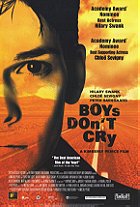
 0 comments,
0 comments, 




